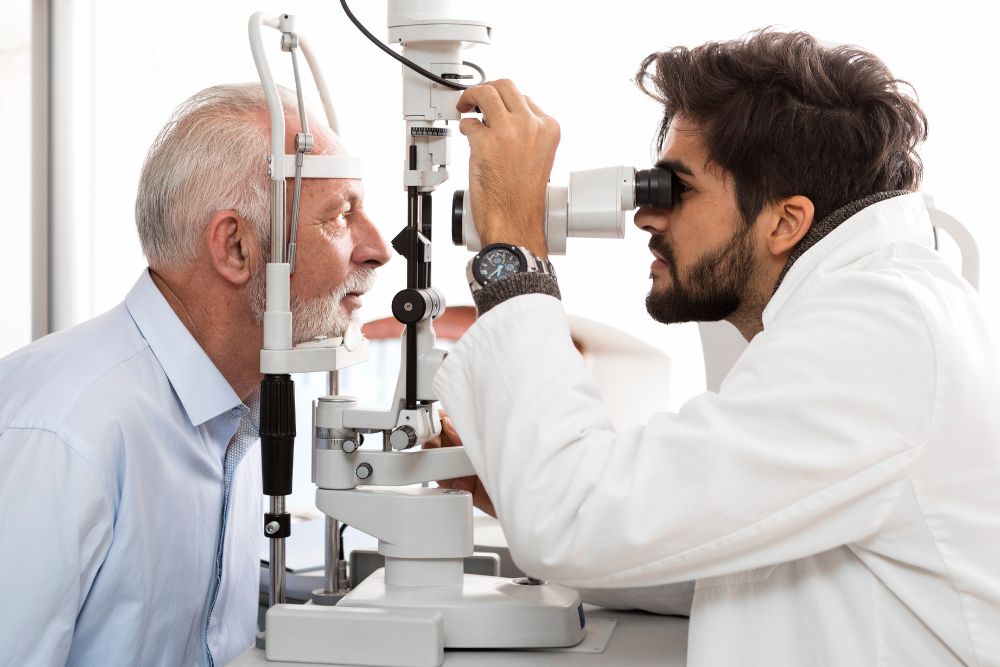Beyond the Basics: Understanding the Different Forms of Macular Degeneration

Many people think of macular degeneration as a single disease, but in reality, it takes different forms that can affect the eyes in different ways. Dry AMD, wet AMD, and geographic atrophy each carry unique challenges and require tailored care. Learning about these forms can help you spot early warning signs and work with your retina specialist to protect your vision.
Dry AMD
Dry AMD is the most common type of age-related macular degeneration, making up approximately 80% of all cases, according to the American Academy of Ophthalmology. Dry AMD may begin in one eye and later develop in the other eye, or it may affect both eyes simultaneously. This condition is progressive, meaning vision deteriorates over time and can impact the ability to read, drive, and recognize faces. Vision loss can range from mild to severe. Early detection is crucial in preventing or delaying further vision loss.
Although symptoms may not be apparent until the condition has progressed, some signs to watch for include:
- Straight lines appearing distorted or bent
- Increased difficulty adjusting to low-light conditions
- Trouble recognizing faces
- The presence of a blurry or blind spot in your field of vision
- Greater blurriness when reading printed text
- A need for brighter lighting while reading
Wet AMD
Wet AMD is an advanced stage of the disease, characterized by abnormal blood vessels that leak fluid or blood into the macula. The wet type always begins as the dry type. Wet AMD symptoms are similar to those of dry AMD, but they typically appear suddenly and worsen rapidly. Early detection and treatment of wet AMD may help reduce vision loss.
Geographic Atrophy
Geographic atrophy is an advanced form of dry AMD that usually affects both eyes. Symptoms may include blurred or distorted central vision, blind spots, difficulty reading or seeing fine details, and colors appearing less vibrant. Geographic atrophy can develop quickly, making early detection essential for effective management.
The Importance of an Accurate Diagnosis
Treatment for dry age-related macular degeneration (AMD) may differ from that for wet AMD or geographic atrophy, depending on the specific patient and the severity of their condition. Retinal care is not one-size-fits-all; therefore, retina specialists must create customized treatment plans to achieve the best results possible. The earlier AMD of all types is diagnosed and appropriate treatment can begin, the better your vision outcomes will be.
Schedule an Appointment with a Retina Specialist
Age-related macular degeneration requires personalized care and expertise for accurate diagnosis and treatment. At Retina Consultants of Texas (RCTX), our physicians specialize in managing complex cases of AMD.
At Retina Consultants of Texas (RCTX), we’re proud to be the largest retina-only ophthalmology practice in the state, serving patients throughout the Greater Houston and San Antonio areas, including Beaumont, Katy, Kingwood, Livingston, Memorial, Pasadena, Sugar Land, The Woodlands, Stone Oak, Boerne, Schertz, New Braunfels, and more. We’ll work alongside your healthcare team to effectively diagnose and help you manage CBS. Contact us today for more information or to schedule an appointment.








